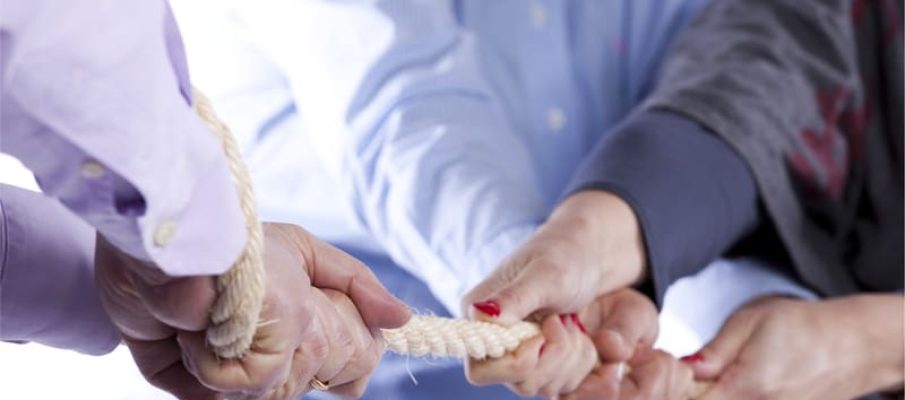At the last company where I worked, we had a “Team-Building Day” once a year. For some reason, this always happened in the middle of the summer when the heat and humidity were brutal. We were given matching t-shirts to wear and sent off to some remote, outdoor location. Once there, we had to divide into teams and compete in a variety of really ridiculous events. We threw water balloons around. We played tug-of-war. And – I’ll never forget this – we raced each other on giant tricycles. (Don’t try that one at home! It turns out that giant tricycles are really hazardous!)
Everyone dreaded Team-Building Day. We never knew exactly what was coming, but we knew that it would be awful. The activities were dumb, and the oppressive heat made everything worse. And in the end, it was really pointless. I mean, I suppose it’s possible that we might have bonded a little bit due to our shared hatred of the day. But other than that, not a lot of team building occurred. And we didn’t come away with any innovative new ideas or problem-solving skills. After it was over, we just returned to the office, and life proceeded as usual. Nothing changed or improved as a result of a sweaty potato-sack race.
So why weren’t these team-building exercises effective? According to author Kate Mercer, there are four reasons:
- It’s hard for most people to see how team-building activities relate to their everyday work. It takes a very skilled facilitator to help people make a connection.
- The activities are often embarrassing. Some people won’t mind. But other people will be cringing inside as they have to run around, balancing an egg on a spoon.
- It’s kind of patronizing. Forcing employees to have “fun” can have the opposite result – employees can come away feeling angry and resentful.
- Socializing and competing don’t necessarily lead to team-building.
Effective team-building activities should help employees to learn more about each other, communicate better, and work together more effectively. Activities could focus on exploring each person’s individual strengths, clarifying the role that each person plays, or investigating how each team member prefers to work and get things done.
Social events are also a great idea! What’s better than going out for lunches, dinners, or drinks with coworkers? But these events should be optional. If people don’t want to socialize with their coworkers outside the office, they shouldn’t be forced into it.
Cave, A. (2016, March 25). Four reasons why team-building exercises can actually damage your workplace. Forbes. Retrieved from http://www.forbes.com/sites/andrewcave/2016/03/25/four-reasons-why-team-building-exercises-can-actually-damage-your-workplace/#3776a05975cc








Anne-Marie Race
04/22/2016 @ 8:16 AM
“I survived our team building day!” T-shirts seem like a good marketing opportunity.
Hartel Stout
04/13/2016 @ 8:39 AM
Sasha – I love your articles. They always seem to be dead-on and manage to make me smile first thing in the morning when I log into email.